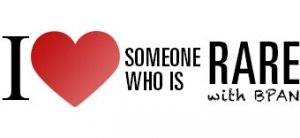Barriers in your head
What is appropriate?
However, this raises the next field of problems. Is it even allowed to call a spade a spade and say, for example, disabled? The word “handicapped” fell into disrepute at some point, and “handicapped person” became “person with disabilities”. One term probably puts the disability more in the foreground and is therefore considered stigmatising, the other emphasises the person, not the limitation. In my opinion, neither of these terms is stigmatising. Personally, I do not find it stigmatising to call someone disabled if the term is used in connection with health restrictions.[1] If I want to achieve understanding, helpfulness and acceptance, it would not make sense to insist on equality. After all, a disabled person needs more support and attention, depending on the type and extent of the disability. Which term is ultimately appropriate can perhaps only be decided by the people concerned themselves. I am merely the relative of a disabled child and can only speak as a non-affected person.
In the last few years, there have been a number of attempts to avoid the word “disabled” in a friendly way.
Our BPAN families in the USA, for example, speak of special needs kids. But not every disabled person has special needs. And the other way round: healthy children can also have special needs. I don’t think this term is really fitting.
In Germany, the term special has become established. As already mentioned in Milly’s story, I find it silly, because every person is special. Besides, peculiar is only a stone’s throw away from special. I don’t think this word comes across as one bit more disability-friendly.
Besides, there are cumbersome terms, such as integration child or child with special needs, which only lead to strange abbreviations, such as I-child. But does I-child sound so much better or more appreciative?
Of course, one should also consider that some parents first have to accept the child’s disability. They will find it hard to bear, as I did at the time, when their child is called disabled. Especially when it is not yet clear whether the lack of development in a certain area of life will one day lead to a disability. Then it is quite appropriate to speak of developmentally delayed children.
Ultimately, all of these terms can stigmatise in some way, as I separate this one person from all others on the basis of a specific characteristic, even if it is only with a letter (I-child).
Whether we will ever strike the right note here and whether there can be a fundamental right or wrong, I don’t know. Is it even possible to do right by someone? What one person doesn’t care about offends another. But maybe it doesn’t really matter how someone is labelled. It always depends on the context. If the context is appreciative and above all non-judgemental, no one will be offended by terms like disabled or special.
However, there are terms that are ostensibly used – by the way, also by parents of disabled children – to make people with disabilities appear more sympathetic or cooler. Here, serious illnesses/syndromes are either trivialised, such as Downie (for people with Down’s syndrome) or Aspi (people with Asperger’s autism). Or the child is reduced to his or her specific disability: Wheelie child, Heart child, ICP child etc. Sure: it makes it easier to exchange with other parents, especially if you don’t want to tell the whole medical history. And yes: perhaps one can also object that it is petty to turn up one’s nose at it now. You can argue about that, the context is of course also critical. But to be honest, I don’t want to be called spectacled just because I wear glasses. Or would you call a person with cancer crabbie, a woman with multiple sclerosis MS-woman, depri-man in the presence of depression or a person with nephritic disease kidney or the like? Why do we have fewer inhibitions in this respect with people with Down’s syndrome and especially with children? Behind all the illnesses/disabilities there are also tragedies, suffering, pain … Of course not always. But we are not inside these people. Each of us wants to be perceived and accepted as a human being first. Yes, a wheelchair child is a child in a wheelchair. But the wheelchair is not the only thing that defines this child. Reducing a person to just one characteristic of his or her personality is not very appreciative. Respect falls by the wayside.
[1] In youth language, for example, handicapped is nowadays more of a swear word, although there does not have to be any reference to mental and/or physical limitations.
